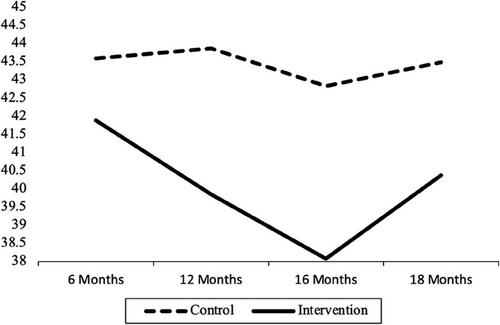Postpartum romantic attachment and constructiveness: The protective effects of a conflict communication intervention for parents’ relationship functioning over one year
Abstract
Parent relationship functioning has a well-documented influence on children's early socioemotional development as early as infancy. Postpartum parenting is also a critically vulnerable period for relationships and often results in relationship decline. We investigated the effects of a rigorous, psycho-educational conflict communication intervention for supporting parents’ relationship functioning in terms of self-reported romantic attachment and observed conflict constructiveness. Using latent growth curve models, we evaluated the change in romantic attachment and constructiveness among 202 mother-father couples from 6 to 18 months postpartum. We further tested a comparison of the effects of the Conflict Intervention (CI) versus the control group and the Conflict Intervention paired with an additional parent sensitivity intervention (anyCI) versus the control group. Results indicated romantic attachment and observed constructiveness decreased over the 1-year period; this decline was partially mitigated for fathers participating in the intervention(s), wherein fathers who received the Conflict Intervention showed less decline in observed conflict constructiveness over time. Moreover, compared with those in the control condition, mothers who received the Conflict Intervention reported lower attachment security at 18 months postpartum. These results underscore the importance of including perspectives from both mothers and fathers when investigating intervention effects and considering the impact of combining interventions for parents.
Research Highlights
- A randomized control trial of a conflict intervention including mothers and fathers demonstrates protective effects for fathers’ constructiveness between 6 and 18 months postpartum but was not protective for mothers.
- Parenting experience, whether parents were transitioning to parenthood or had older children, did not significantly predict romantic attachment or behavioral constructiveness trajectories.
- Interparental romantic attachment and constructiveness declined only slightly postpartum.
- Effects of the intervention were reduced when the intervention was combined with a second intervention.


 求助内容:
求助内容: 应助结果提醒方式:
应助结果提醒方式:


